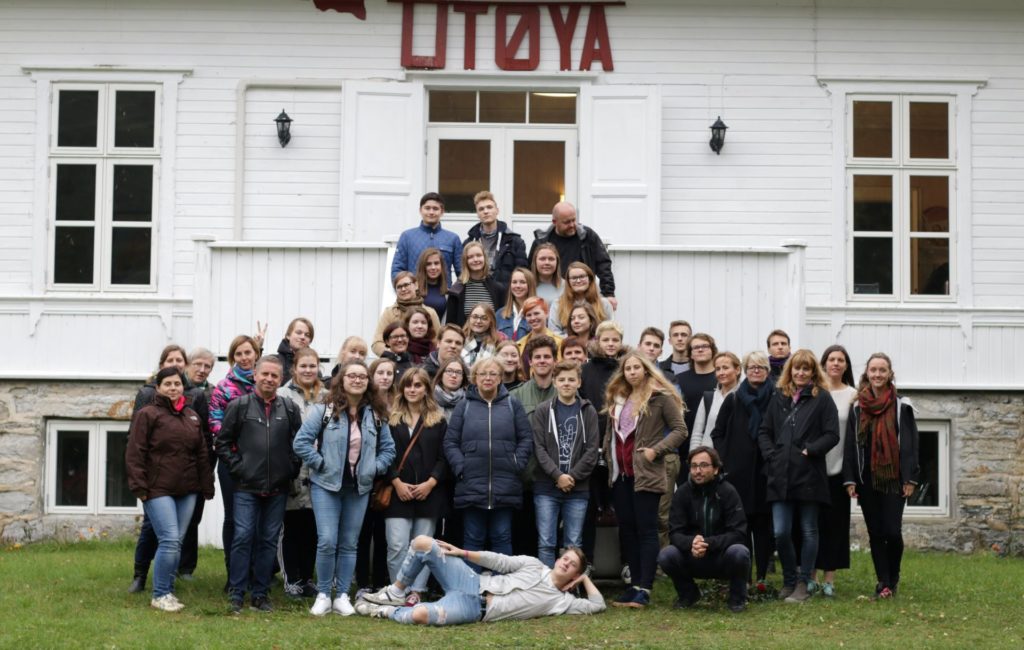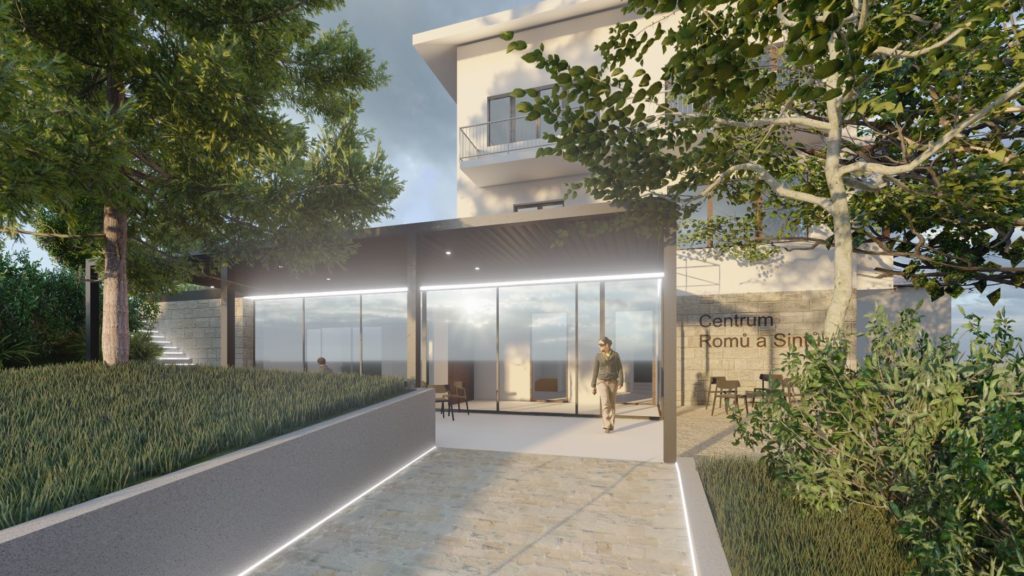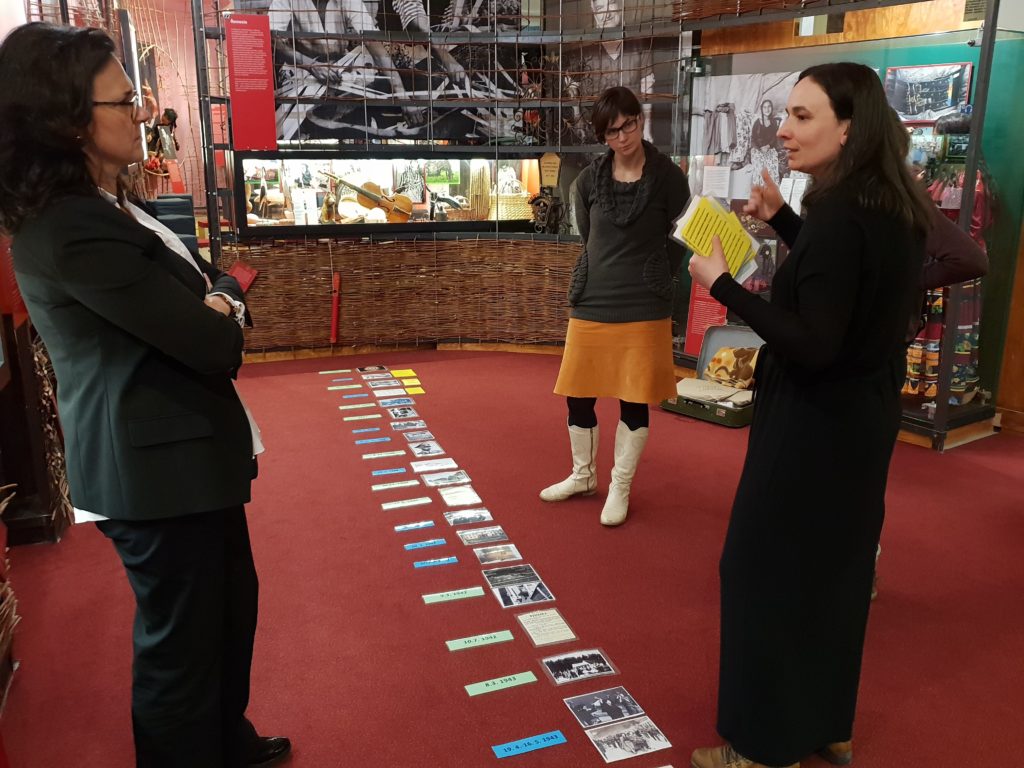Museums and other cultural institutions increasingly look upon their visitors as participants rather than passive spectators. This increases their potential as arenas to foster democratic competences. One such institution is EWC´s partner the POLIN Museum of the History of Polish Jews.
“I believe this switch of a perspective, letting the visitors take an active role and giving the space for expressing the experiences of the minorities, is a noteworthy pro-democracy change. This approach can transform museums into forums of participation, where the skills needed in a democratic society […] can be trained”, says project manager at POLIN Museum, Hanna Kłoszewska.
“Young people need to develop the confidence and competence to act and participate through democratic means and principles. Non-formal learning arenas such as the Polin Museum, are important for this to happen. If young people experience a safe, inclusive, and democratic culture in the places they live their lives, it can inspire and motivate to enact social responsibility and active participation also beyond their daily lives. In the long run, this is vital to counter increasing inequality, polarization, and lack of trust in established democratic institutions and processes, says Lars Gudmundson, EWC Deputy Director.

One of the focus areas of the educational program of POLIN Museum is the discrimination experienced by minorities. One example of how their projects address this issue is a recent performance by a group of youngsters based on the methodology of the Forum Theatre. Building on the chosen topic of discrimination, the group created their own presentation, inviting the audience to take an active part during the performance to see how they could support the main character. In this way, all included parties were exercising their abilities to react to the discriminatory situation.
“Museums which concentrate on the histories of minorities, like we do at POLIN Museum, have an additional role in strengthening the understanding of democracy as a system where the majority makes the law, but always respects the rights of the minorities. Exploring the past through the perspective of minorities very often shows another perspective of the well-known historical events, it helps to discover the challenges faced by the representatives of the minority groups, and demonstrates what the society gains thanks to the minorities,” project manager Hanna Kłoszewska and trainer Katarzyna Niewczas explain.
“EWC is an important, valuable, and experienced partner for POLIN Museum. Projects implemented with EWC develop young people’s democratic competences by strengthening their sensitivity, passing on knowledge and building new social competences. I believe that the cooperation of our institutions will allow us to exchange good practices in our work, as we both address difficult and often controversial, but very important topics”, project manager Hanna Kłoszewska says.
Together with POLIN Museum, EWC will offer a 3-year educational project for Polish and Norwegian youth, starting in 2021. The project will address issues such as hate speech, intolerance and polarization. Both Poland and Norway face problems of hate speech targeting a variety of groups, among them Jews. Using historical examples and linking them with current events, the project aims to raise awareness and knowledge about how language and communication can be used to discriminate towards and undermine certain groups and individuals, and how to foster and promote critical thinking and inclusive societies. It aims to empower learners to be active citizens and better prepare young people for life in today’s diverse society. It also aims to enable teachers from both countries to share their knowledge and experience and strengthen their resolve to fight xenophobia and build attitudes of respect for people of different ethnic and religious background.
Another initiative where EWC is partnering with a museum to promote democratic competences through informal learning arenas, is the new Roma and Sinti Centre in Prague. As part of the Czech government´s strategy to eliminate the unacceptable differences between the majority population and the Roma minority, the Museum of Romani Culture in Brno was assigned the task of developing and managing the new centre, which is scheduled to open in 2023.
Right: EWC Director Ana Perona-Fjeldstad visiting the Museum of Roma Culture (Brno) exploring their educational activities in 2018.
The centre will serve as a place to learn about Roma culture and history, as well as for intercultural encounters and dialogue. EWC will contribute to the conceptualization of the educational and awareness raising services that the centre shall provide for schools and youth, included training of trainers working at the centre. “In addition to teaching about Romani history, our focus is on education about democracy and human rights […], and the EWC´s experience in this is very valuable”, says Head of the Center, Olga Vlčková.
Gudmundson at the EWC believes such cooperation provides other opportunities than we find in formal education settings.
“One of the main aims of formal education is to foster democratic citizens who can actively take part in and sustain democratic societies. Informal education settings such as NGOs, youth centres, youth councils, libraries, museumsand others, provide an important supplement to formal education institutions in this regard. Non-formal learning often takes place in settings that have fewer constraints than formal learning. There is less focus on curriculum and assessment, and more freedom to explore interactive methodologies, cooperative learning, and peer-to-peer exchanges. Non-formal learning settings offer access to and interaction with other local community actors to a larger degree than what is often the case with schools and other education institutions,” he concludes.

